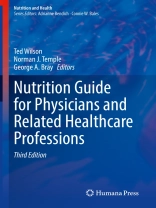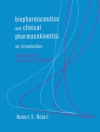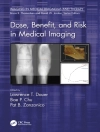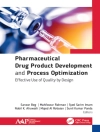This fully updated and expanded third edition is a reference guide on nutrition and its clinical implications for health and disease through the life-cycle. The book endeavors to address the needs of those who would most benefit from up-to-date information on recent advances in the field of nutrition. Written by experts in the field, chapters cover a diverse range of nutritional areas that present a succinct overview of recent thinking and discoveries that have the greatest capacity to aid physicians and other healthcare professionals in improving the nutritional health of their clients. The text is divided into eight parts. Part one and two address the nutrient requirements and special nutrition-related issues for people across all stages of the lifespan—from pregnancy and infancy through the adolescent years to the older adult years. Part three summarizes the role of nutrition in the prevention and management of chronic conditions frequently seen in clinical practice, including obesity, diabetes, bone disorders, coronary heart disease, hypertension, and cancer. Part four describes different dietary patterns (the Mediterranean diet, the DASH diet, the vegetarian diet, and the ketogenic diet). Part five describes nutrition challenges specific to surgery and several different acute diseases and disorders (gastrointestinal disorders, food allergy and intolerance, diseases of the liver and pancreas, kidney disease, eating disorders, bariatric surgery, sarcopenia, and drug interactions with food). Part six looks at different aspects of the diet (coffee, tea, dietary fat, dietary sugars, energy drinks, alcohol, dietary fiber, vitamins, minerals, and the gut microbiome). Part seven examines a range of factors that influence dietary health decisions (creating nutritional behavior change, methods for assessing nutritional status, Dietary Reference Intakes, an overview of the diet and food guides, food labels, and sources of nutrients). Finally, part eight looks at dietary supplements (including the problem of dishonest marketing) and false and misleading information in the area of nutrition. The growing nutritional impact of COVID-19 is discussed throughout the book where appropriate.
Nutrition Guide for Physicians and Related Healthcare Professions Third Edition serves as a comprehensive guide that is organized by age/lifespan, nutrition therapy in relation to chronic disease and COVID, diet and its role in prevention, dietary requirements and recommendations, and influencing health decisions for the patient. It is a valuable resource of practical and easy-to-access information on nutrition for physicians, nurses, pharmacists, and others in their daily practice.
Innehållsförteckning
Part I: Introduction.- Why Nutrition Matters in Clinical Practice.- Part II: Nutrition Consideration Across the Lifespan.- Pregnancy: Preparation for the Next Generation.- Infants: Transition from Breast to Bottle to Solids.- Young Children: Preparing for the Future.- Nutrition in Adolescence.- Nutritional Challenges of Girls and Woman.- Healthy Aging: Nutrition Concepts for Older Adults.- Dietary Considerations for Postmenopausal Women.- Dietary Influence on Cognitive Function in the Elderly.- Part III: Nutrition for the Prevention and Management of Chronic Diseases.- Inherited Metabolic Disorders and Nutritional Genomics: Choosing the Wrong Parents.- Obesity: Understanding and Achieving a Healthy Weight.- Nutrition Therapy for the Treatment of Type 1 Diabetes.- Nutrition Therapy for Prevention and Treatment of Type 2 Diabetes.- Osteoporosis and Bone Health: Sound Suggestions for Stronger Bones.- Coronary Heart Diseasee: Nutritional Interventions for Prevention and Therapy.- Dietary Influence on Blood Pressure.- Diet, Physical Activity, and Cancer Prevention.- Nutritional Prevention of Irritable Bowel and Gastrointestinal Disorders.- Part IV: Nutritional Requirements Following Surgery and Acute Disease.- Dietary Considerations During Chemotherapy.- Role or Nutrition in Understanding Common Gastrointestinal Disorders.- Food Allergy and Intolerance: Diagnosis and Nutritional Management.- Nutrition in Patients with Diseases of the Liver and Pancreas.- Medical Nutrition Therapy for Kidney-Related Disorders.- Eating Disorders: Disorders of Under and Over Nutrition.- Nutritional Considerations for the Treatment of Depression.- Nutritional Considerations Following Bariatric Surgery.- Nutrition for Sarcopenia Prevention.- Drug Interactions with Food and Beverages.- Part V: Food and Nutrient Health Effects.- Coffee Consumption and its Impact on Health.- Health Effects of Tea Consumption.- Dietary Fat: the Good, the Bad, and the Ugly.- Dietary Sugar Intake: Is There a Best Recommendation.- Dietary Recommendations for Juices and Soft Drinks.- Sports Beverages for Optimizing Physical Performance.- Energy Drinks and Human Healthy.- What is the Best for the Patient: Abstinence or Moderate Alcohol Consumption?.- Dietary Fiber: All Fibers are not Alike.- Vitamins: The Essentials.- Mineral Nutrients: From Macro to Ultra Trace.- Nutritional Influence on the Gut Microbiome.- Part IV: Influencing Dietary Health Decisions.- Guidelines for Nutrition Screening, Assessment, and Referrals in the Clinical Setting.- Nutritional Status: An Overview of Methods for Assessment.- Food Synergy, Nutritional Science to Food Guides.- Dietary Supplements: Navigating a Minefield.- A Plague of False and Misleading Information.- Dietary Reference Intakes: Cutting Through the Confusion.- Food Labels and Sources of Nutrients: Sorting the Wheat from the Chaff.- Part VII: Conclusions.- What Needs to Change for Nutritional Health to Improve?.- Appendix A: Aids to Calculations.
Om författaren
Ted Wilson, Ph D Department of Biology Winona State University Winona, MNUSA
Norman J. Temple, Ph DAthabasca University Centre for Science Athabasca, Alberta Canada
George A. Bray, MD, M.A.C.P., M.A.C.E. Pennington Biomedical Research Center Louisiana State University Baton Rouge, LAUSA












